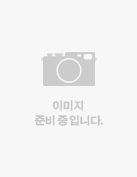
A controversial issue that repeatedly rears its head during exams period is with regards to Jokbo, a collection of previously-used exam questions made by and shared between students as a way to potentially gain an advantage in exam preparation. By using past exam questions, that is Jokbo, students can identify exam question trends and frequently-covered topics, providing significant assistance when getting ready for exams.
However, the fact that Jokbo guides are only shared between certain students, and not between everyone, is a major issue within Korean universities, where it has become habitual for students who have taken a course to give or sell Jokbo to junior students.
Part of the reason why Jokbo has become more so controversial is that it’s still common for courses to rehash past exam questions rather than create new ones. There are various consequences to this, with one being that it creates a market for Jokbo as students know past questions are likely to come up in exams, thus incentivising more students to seek out Jokbo. With Jokbo perceived to offer the chance of higher test scores, the demand for the guides is as high as it's ever been.
However, while demand is currently high, the supply of Jokbo is shorter than it was before the COVID-19 pandemic when face-to-face communication was more active and sharing between senior and junior students more commonplace. While it's easy to see buying and selling of Jokbo in SeoulTech's online communities, there is still an element of exclusion. For instance, in some cases, only those belonging to certain clubs will be able to obtain Jokbo.
In theory, making Jokbo can cause copyright problems. In general, exam questions are intellectual property written by professors.
Therefore, copying or distributing Jokbo without the professor's permission could constitute copyright infringement. Professors also have differing perspectives on Jokbo: some professors recognize the issue and try to address Jokbo problem, while other professors are less engaged and would rather blame students who spread it.
It will take several parties’ efforts to solve the long-running problem with Jokbo. The most obvious solution is to set different exam questions every year, so that Jokbo does not have a significant impact on grades. If professors change the exam questions every year, the exam will ensure fairness, because all questions will be new to all students, not just those who could not access Jokbo.
However, one limitation is that students who did obtain Jokbo could still be at an advantage. Even if the questions in an exam are ‘new,’ those students with Jokbo may still have been able to identify topics and question trends and likely topics. An alternative solution is for professors to disclose past exam questions to their students so that, even if students do have access to Jokbo, it will no longer give them an edge over those who don't. If everyone can see the past exam questions, the types of questions, and the important aspects of the questions, it will create the fairest and most equitable test for all students.
Alongside exam-focused solutions, it's important to improve students’ and professors’ awareness of the Jokbo issue more broadly. By doing this, students could realize that getting hold of Jokbo is not the only way to do well in exams and such an approach could, in some cases, be counterproductive. Additionally, universities could take stronger steps to prevent students from producing and distributing Jokbo, perhaps alongside more rigorous implementation of copyright protection policies.
Reporter,
Yoojin Park dreamingloveyoo@seoultech.ac.kr


 Comment 0
Comment 0 Posts containing profanity or personal attacks will be deleted
Posts containing profanity or personal attacks will be deleted